You know that something strange is going on with your cat if they are always hungry but keep getting skinny. So what could be causing this? This article explores some of the common reasons this could be occurring, and what you should do. One thing is for sure though, weight loss can be a sign of a health issue and should be taken seriously.

The 6 Causes of Weight Loss Despite a Good Appetite
Here are some of the more common causes of weight loss in cats that are still eating a lot. If your cat is constantly pestering for food but appears to be underweight, these are some of the reasons why:
1. Cat Hyperthyroidism
This condition is commonly seen in older cats, and perhaps gives us the most obvious example of a skinny, hungry cat. These cats can often have quite dramatic weight loss, yet have excessively keen appetites. Sometimes other symptoms are seen too, such as tummy upsets, changes in temperament/activity, increased thirst, and an increased heart rate.
Hyperthyroidism is caused by the increased production of thyroxine, a hormone that controls metabolism. This occurs because the thyroid gland gets a growth—it’s usually benign, but in very rare cases a cancerous tumor can be the cause of these symptoms too (thyroid adenocarcinoma).
Diagnosis is usually made from a physical examination and blood samples. Your veterinarian may be suspicious of the condition after examining your cat. They can sometimes feel the enlarged gland in the throat, and hear abnormalities in the heart such as an elevated rate and change in rhythm. A blood test is advised to screen for other conditions and to measure your cat’s thyroxine levels (called T4).
- Medication – daily medication of tablets or liquids can help suppress your cat’s thyroid hormone production and bring symptoms under control. He will need regular monitoring through checkups and blood tests.
- Surgery – removal of the thyroid gland can be curative, meaning no ongoing treatment. However, there are some risks associated with this.
- Diet – a prescription diet that has restricted iodine levels can stop your cat from producing the thyroid hormone. This does mean no treats or other food is allowed, as the diet won’t work. It’s also not very tasty, and some cats will not eat it.
- Radioiodine therapy – considered the “gold standard” and curative in most cases. Radioiodine therapy for cats involves a stay at a referral hospital for several days. No ongoing monitoring will be needed afterward, but it can be expensive, and may not be suitable for some cats.
Hyperthyroidism can be managed with many cats leading to a good quality of life after diagnosis. Left untreated your cat could suffer from high blood pressure (leading to eye problems), digestive issues, and heart abnormalities. Untreated hyperthyroidism can eventually become fatal over several months.
2. Cat Diabetes
Diabetes mellitus (sugar diabetes) can cause cats to lose weight. They will also commonly have increased thirst and urinate more frequently, and some of these cats will have an increased appetite (called ‘polyphagia’).
Diabetes is caused by a reduced ability to produce insulin, the hormone that controls blood sugar levels. This can be type I, an autoimmune condition (common in humans but rare in cats), or type II, caused by abnormalities in the pancreas and also insulin resistance in the tissues in the body. It is much more common in overweight cats that aren’t very active.
Diagnosis is usually made after a physical examination and blood tests, which show high levels of glucose (sugar). Urine samples can also be useful as high levels of glucose can often be found here too.
Treatment often involves supplementing the cat with insulin, which is done through regular daily injections. Dietary management can be very useful in some cases too. Not treating diabetes properly can lead to complications such as problems with your cat’s nervous system, eyesight issues, and a serious condition called ketoacidosis which can be fatal.
3. Inappropriate Cat Diet
The cause of your cat’s weight loss could be an inappropriate diet such as an energy-activity mismatch. This might happen if a very energetic cat isn’t receiving enough food. Make sure you double-check the packet guidelines and are feeding for your cat’s ideal body weight. Also bear in mind that some cats will need a bit more than the guidelines (if they are very active), and equally some will need a bit less.
Making sure that your cat is on a good quality complete diet that is appropriate for their life stage (kitten, adult, senior) will help. Home-cooked diets can be very hard to get right and need advice from a board-certified veterinary nutritionist.
If you need to speak with a vet but can't get to one, head over to PangoVet. It's an online service where you can talk to a vet online and get the advice you need for your pet — all at an affordable price!

- Check out our top picks for cat food bowls to meet your kitty’s mealtime needs and elevate their dining experience – Best Cat Food Bowls: Reviews & Top Picks.
4. Cat Parasites
Large numbers of parasites could cause weight loss. Worms such as roundworms and tapeworms living in your cat’s digestive tract can absorb some of the nutrients your cat is eating, causing them to lose weight.
Cats with parasites may also show other symptoms such as diarrhea or vomiting. To prevent this from happening you should ensure your cat has routine worming treatments, particularly if they are hunters or go outside a lot.
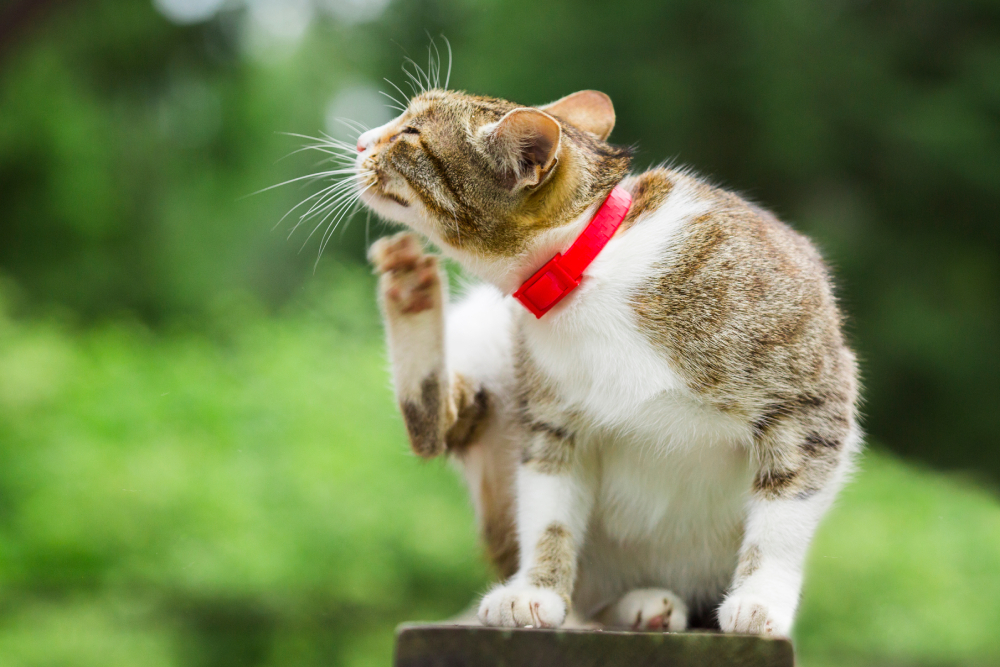
5. Cat Stress
Some cats can eat more due to stress, but they may also be burning that off through nervous energy. Stress-induced vomiting may mean that they aren’t keeping down the food they are eating too.
Other signs of stress in cats include hiding away more than normal, having accidents in the house (urine and feces), and changes in temperament. Cats can become stressed by things such as moving house, a new baby in the home, new pets moving into the house, and new cats in the neighborhood outside. It is important to rule out other health conditions before attributing your cat’s lean weight to stress.
6. Cat Gastrointestinal Disease
There are a variety of digestive disorders which could mean your cat may still have a keen appetite but may not be processing their food properly. Conditions such as inflammatory bowel disease and some cancers may cause vomiting or diarrhea. This can cause weight loss as your cat cannot effectively digest their food. If your cat is showing signs of poor digestion, then you should contact your veterinarian for advice.

What Will My Veterinarian Do?
If you are concerned about your cat’s weight and appetite, you should take your pet to your veterinarian for a check-up. If your cat goes outside a lot, you may not be seeing any vomiting or diarrhea that might be occurring, so do not assume it is not happening. Weight loss may be the only sign you notice.
Your veterinarian will give your pet a check-over initially but may also advise further tests. Blood samples can screen your cat’s general health by looking at the liver, kidneys, blood sugar, and thyroid hormones. Urine samples can screen for infections and elevated sugar levels, and fecal samples will identify any parasites or bacterial infections. Sometimes x-rays or ultrasound imaging may be required to reach a diagnosis.
Your veterinarian will talk you through the process step by step, and tailor any recommended diagnostics or treatment to your cat.

Conclusion
Weight loss can mean there is an underlying health condition occurring, so you should take any changes in your cat’s appetite and body condition seriously. Being underweight can also leave your cat weakened and less likely to be able to withstand infections and stresses. The sooner you take your pet to the veterinarian, the sooner a problem can be identified and dealt with—so don’t delay!
See also:
- How to Tell if a Cat Is Hungry Signs to Look For
- Where to Find Free Cat Food Samples? Sites to Visit Today
Featured Image Credit: Poto69, Shutterstock
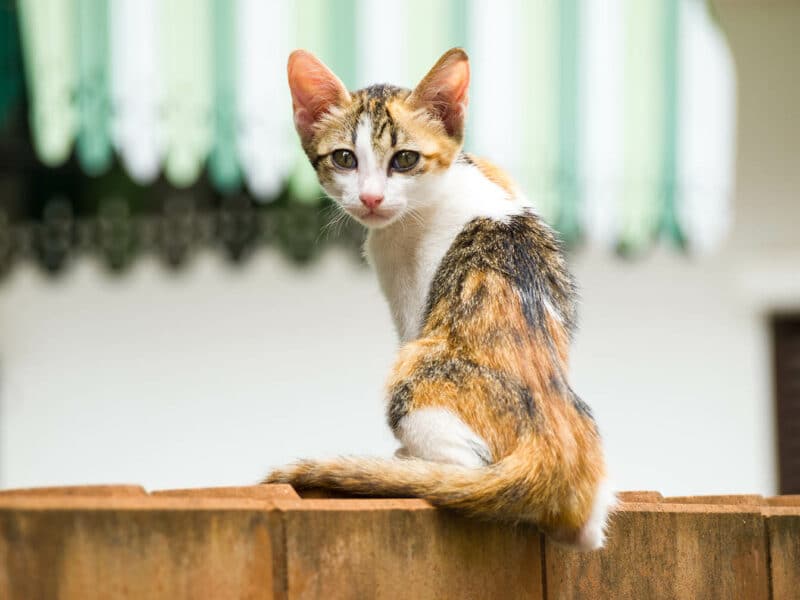

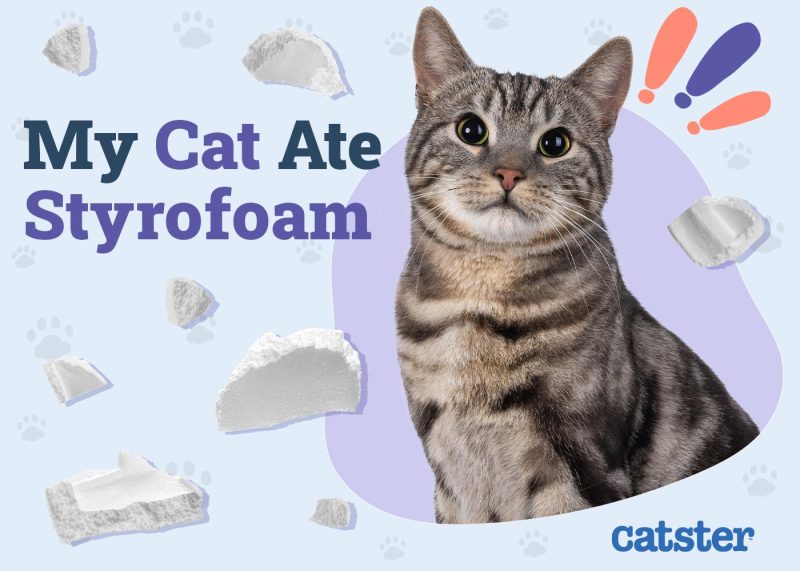
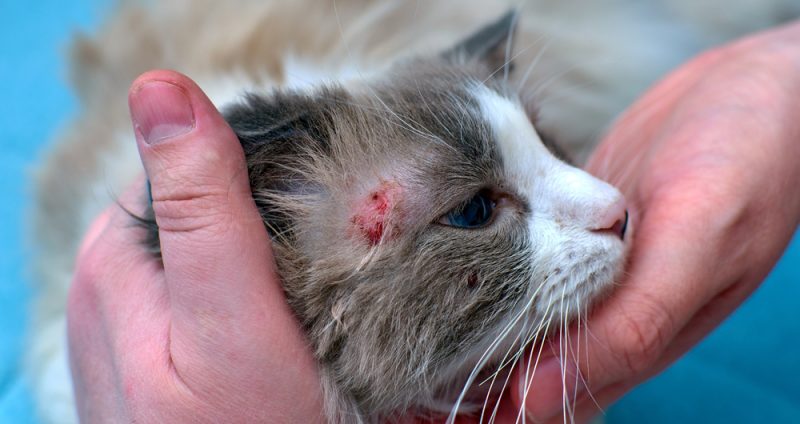
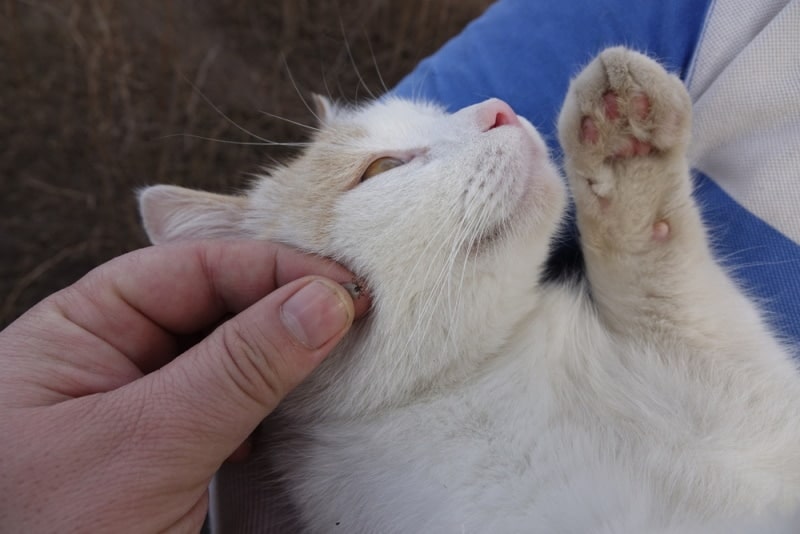
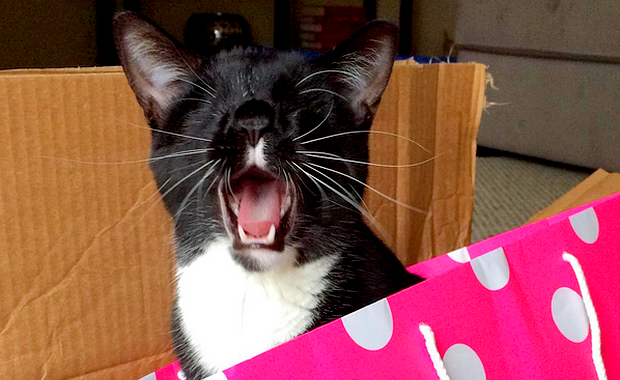
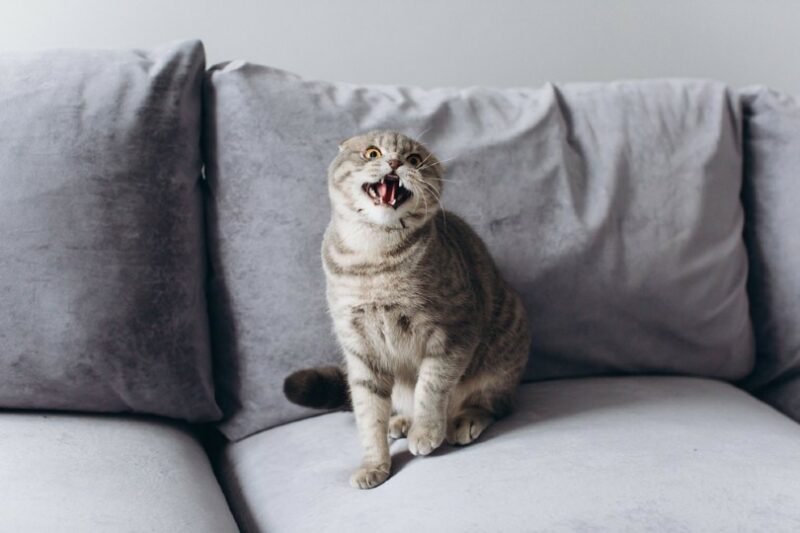

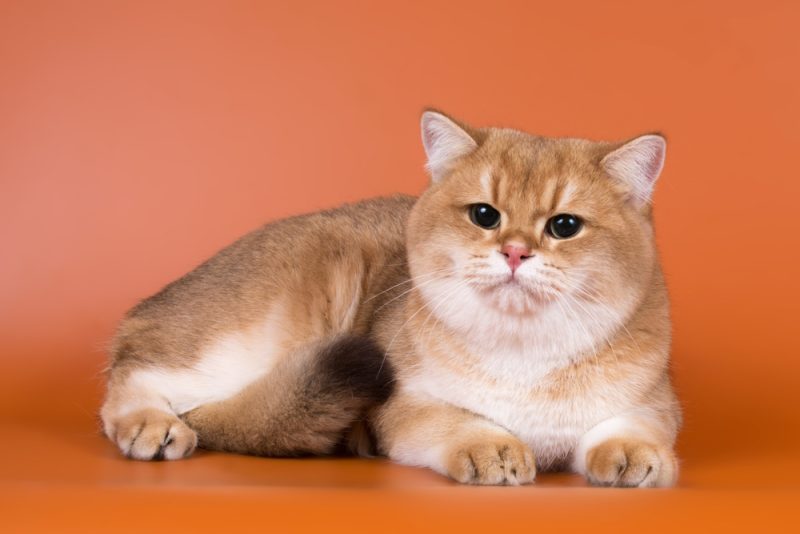
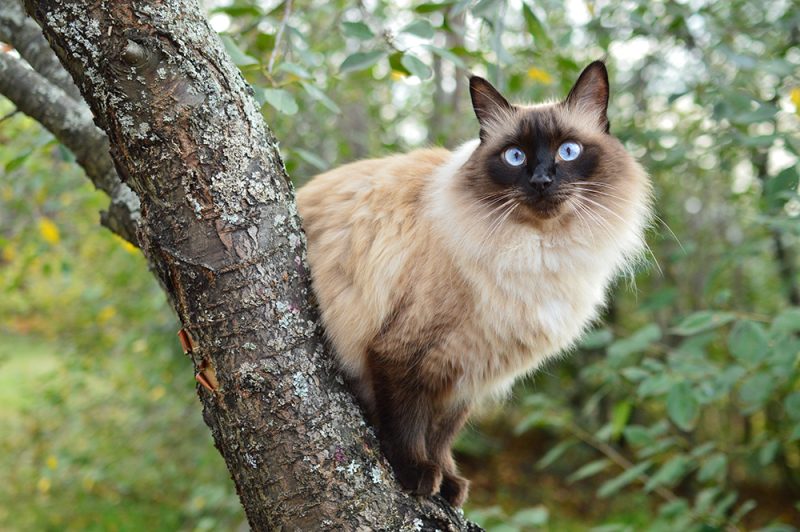
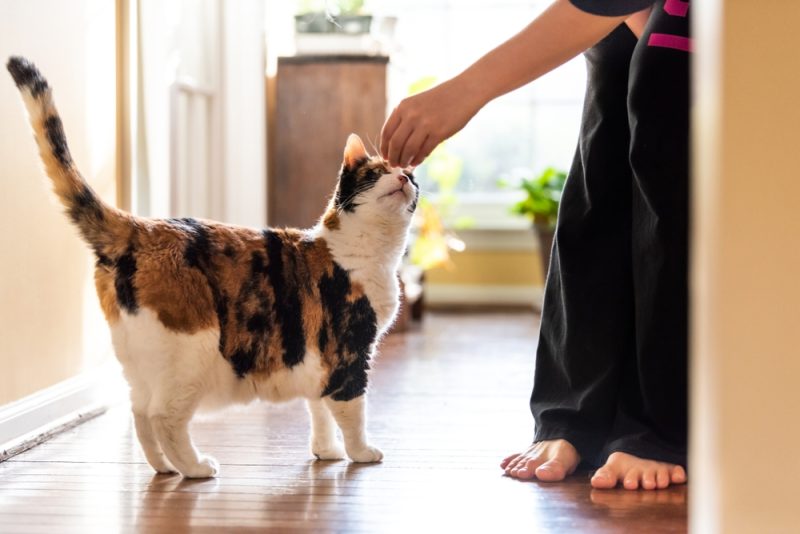
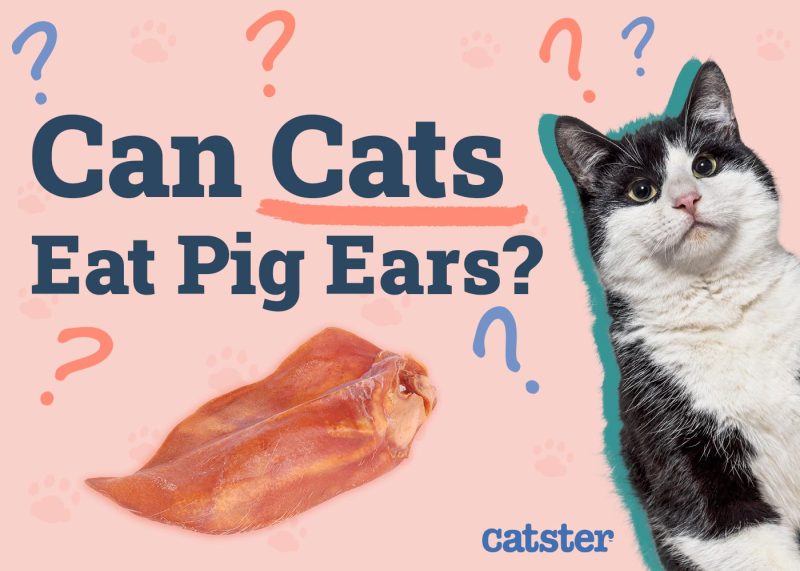
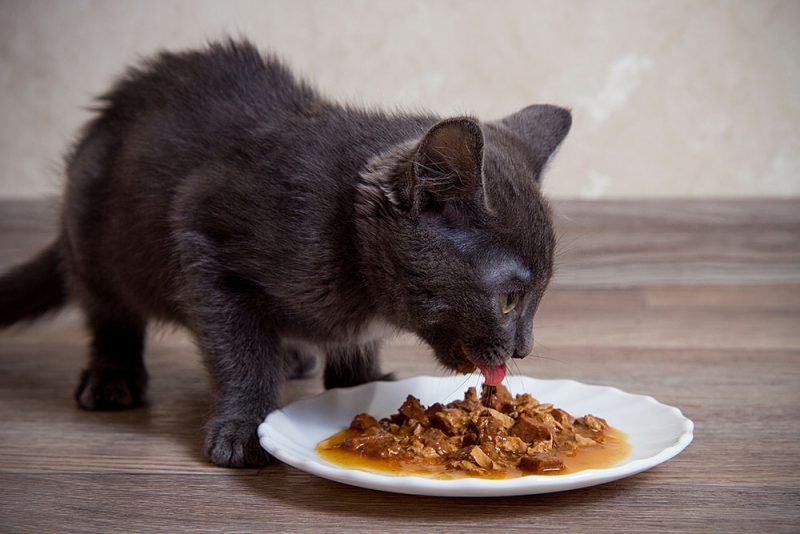
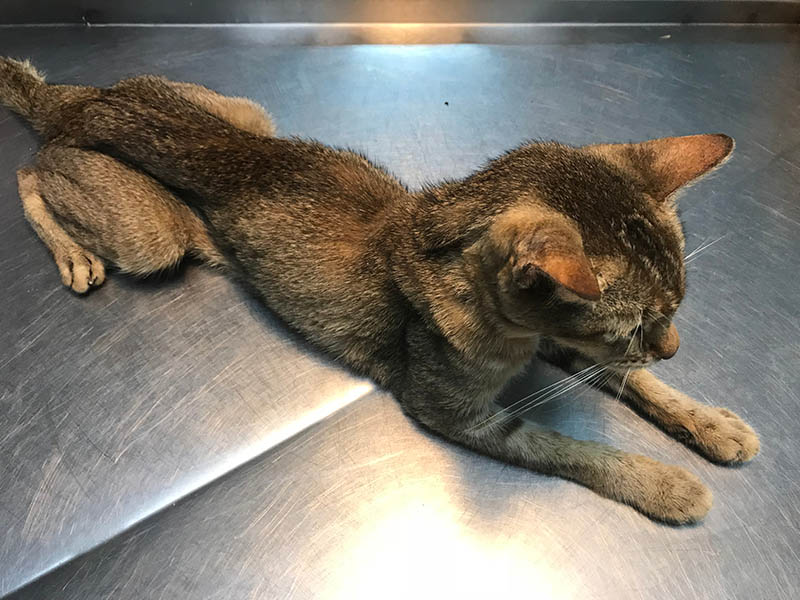
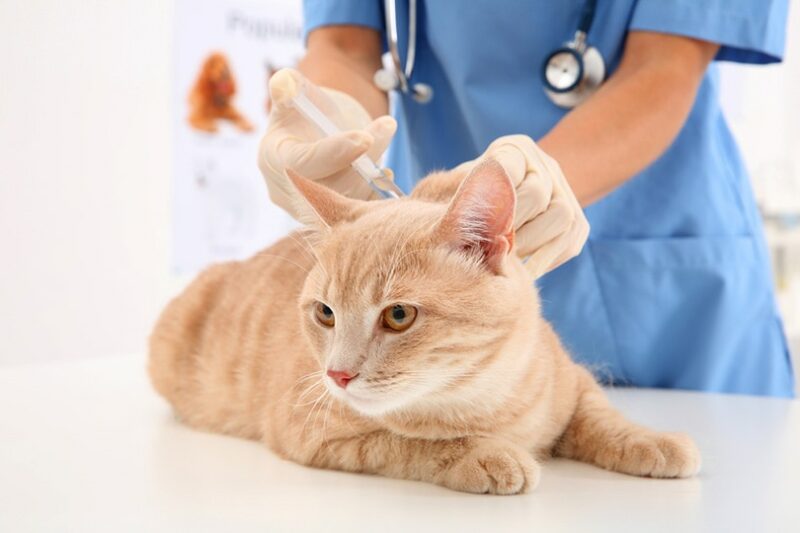
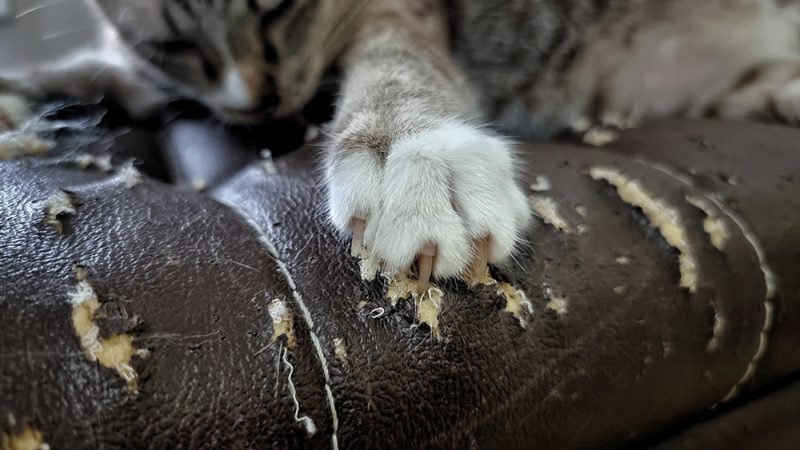
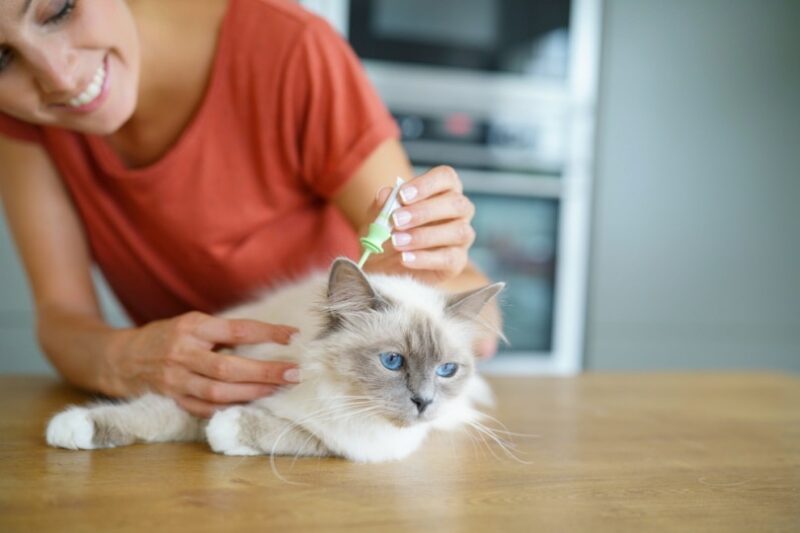
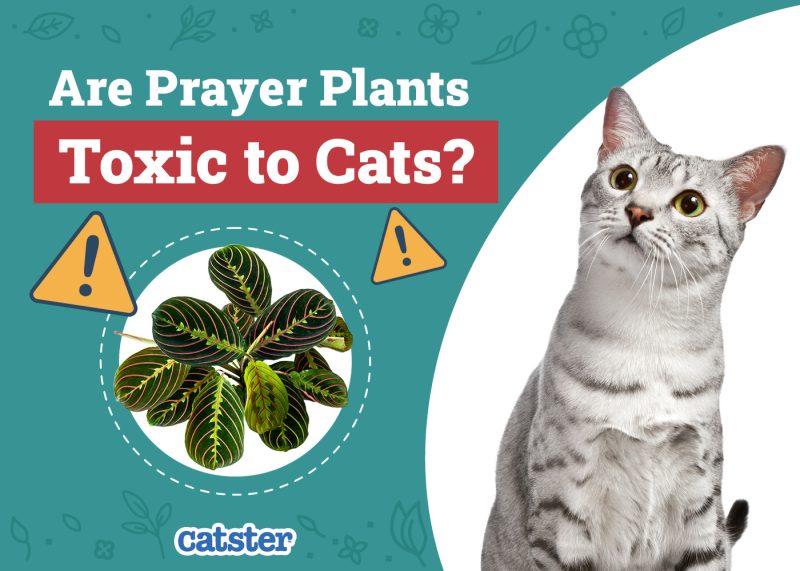



4 Responses
I've adopted strays, ferals, and shelter cats over many, many years, and many of them don't want to be picked up. I start small by putting my hands under their tummies, picking them up a couple of inches & then immediately putting them back down. In the beginning, I do this while they're eating. They're startled at first, but slowly get used to it as I raise them a little more each day until I can pick them up when they're not eating. It works for me and them. After they get used to it, I always pick up a cat by placing my left hand under their front legs with palm under chest & fingers splayed under their front legs, right hand under their behind and scoop them up. By controlling their front & hind legs, they can easily be loaded into a cat carrier.
Thanks for sharing your experience with us Beatrice L Trinder. These are very valuable tips to gradually desensitize cats to allow being picked up.
Hi Dr. MacMillian,
Thank you so much for this thorough description of what might be happening to my cat. One problem I have is that my cat doesn't let us pick her up. She is a rescue cat and experienced trauma before we got her.
Even after 10 years Stevie gets triggered when we try to pick her up. She'll run off and hide lickety-split. Stevie does jump up on our laps if it is her decision to get some petting. The only time we have been able to contain her in a travel bag is if we give her some Benadryl to make her sleepy. What would you suggest in this situation? Is it cruel to do nothing.
Stevie is 12 years old and has had a good life since we adopted her.
Thank you for you advise.
Hi Monica George-Halling. Catster’s customer service staff here. You may find these posts useful: https://www.catster.com/cat-behavior/why-cat-doesnt-want-to-be-held/. For transportation like vet visits, you could try training your cat: https://www.catster.com/lifestyle/how-to-crate-train-my-cat/. We hope this helps. Also, if you would prefer to speak directly with one of our vets, you can reach them at www.pangovet.com